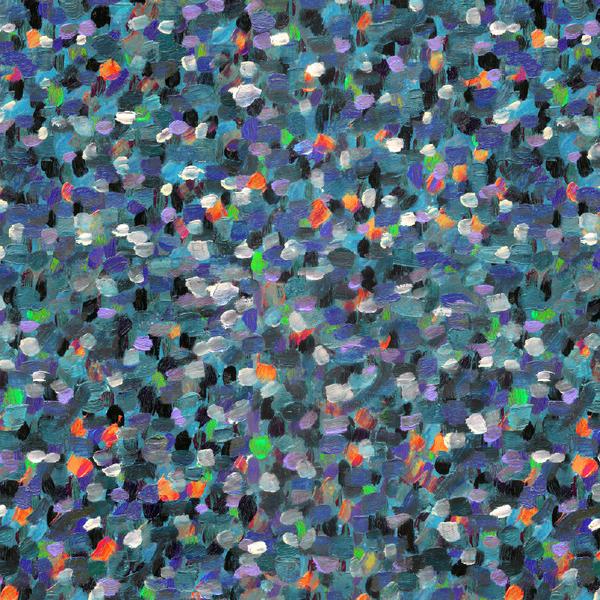ה’ אחד. God is One.
The central affirmation of Jewish faith: that within all the world’s flaws and brokenness, there lies is an incipient perfection and wholeness. That beyond the chaos, there is cosmos. That the One God is the paradigm of goodness, order, meaning and purpose. That is what keeps me going as an affirming, faithful religious person.
And yet … a religious Jew has to confront all the counter evidence. Faith in God’s ultimate goodness cannot make you explain away all the cruelty, blindness, and selfishness that mars the world and – from the near perspective at least – does make it seem more fragmentary than unified.
This tension must frame a responsible religious life. Think of it like a pointillist painting: viewed up close, it’s all jumbled dots; seen from across the room, it’s order and light.
For me, as a Jew davening the Shema, I must affirm that God is One, and even while I say those very words, from some perspective, I must also dissent and recognize what is still broken in fragments.
One way to conceive of this tension is to frame it as a reality unfolding through history. This is precisely the view of the greatest medieval Jewish exegete, Rabbi Shlomo Itzhaki [France, 1040-1105], or “Rashi.” In his commentary to this verse, Deuteronomy 6.4, Rashi addresses the semantic oddity that Shema affirms both that ה’ אחד God is One – meaning the universal Lord – and ה’ א’להינו, “our God” – covenanted specifically to the smallest of human families, the Jewish people, in history. How can we correlate these two claims for both God’s infinite grandeur and relatively smallness?
“At this time,” Rashi says, “Hashem is our God, but not the God of the other nations. However in the future God will truly be One, as it says: then I will transform the other nations into a pure speech, so that they will all invoke the name of God [Zephaniah 3.9] and on that day God will become One and God’s name will be One [Zekhariah 14.9, (this verse familiar to us from the end of Aleynu)].”
Let us note, then set aside the religious triumphalism here. ה’ א’להינו , Adonai Eloheinu, “our God,” cannot mean that we “own” God. We should affirm that other human cultures also have sacred relations to the divine, while Rashi probably expected that at the redemption, the rest of the world would adopt Judaism. But a davening 21st century Jew need not take that view to appreciate the depth of Rashi’s commentary.
In the words of Shema Israel, Rashi finds the message that the Torah itself regards monotheism as an unfinished revolution. One distant day, all people will acquire the consciousness of God’s Oneness, finding the sacred presence in all that exists. But that’s not the world we live in today. There is too much violence, too much bigotry, too much oppression and cruelty, too much stupidity and ignorance – some of it even our own – to say that God’s Oneness is fully realized. At least not yet. But that day is coming.
So tonight or tomorrow morning, try to daven the unfinished Shema revolution along with Rashi. Affirm that ה’ א’להינו , Adonai Eloheinu, the Lord is our God, and we have a culture and religious tradition that helps religious consciousness begin to dawn upon us. And also that ה’ אחד, that God is One, a universal ideal that remains to be realized “on that day.”





